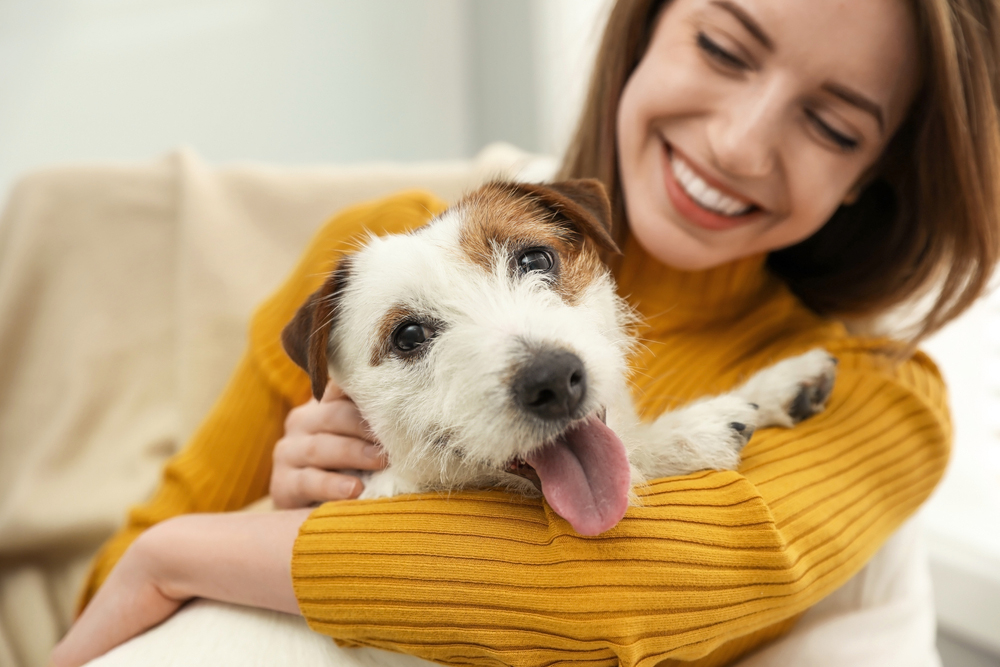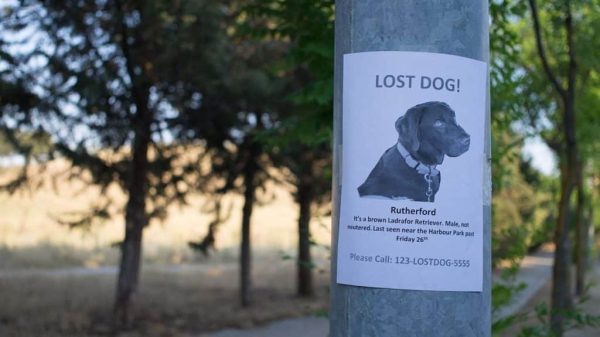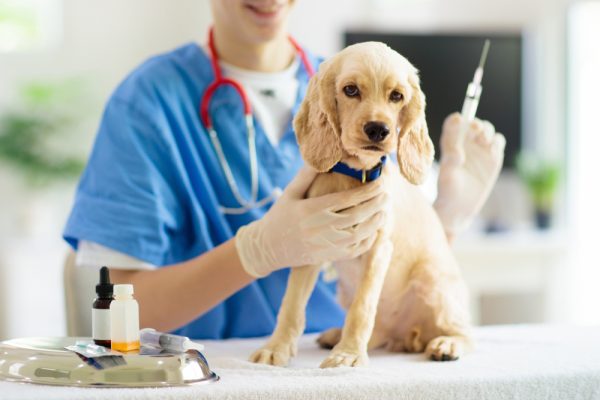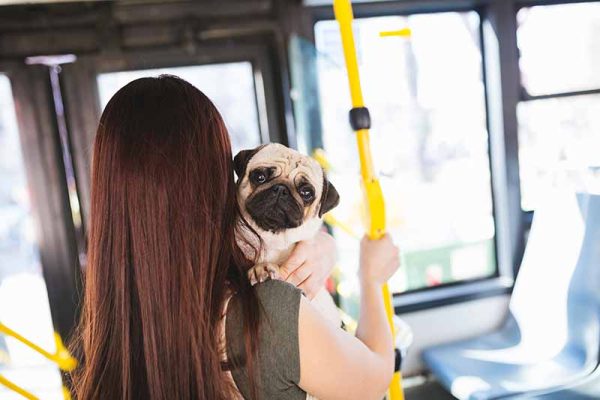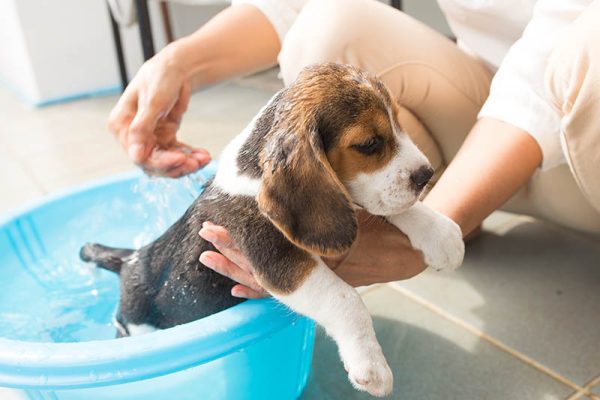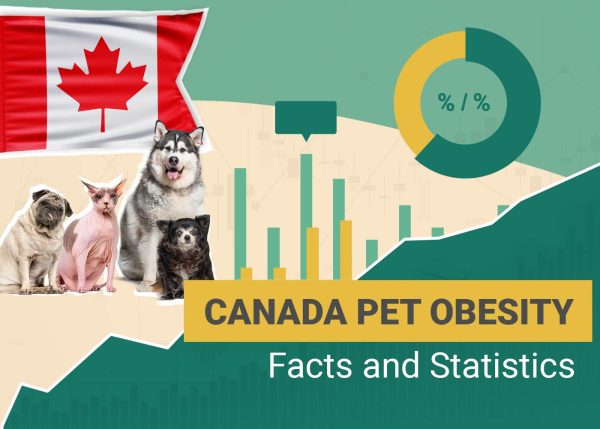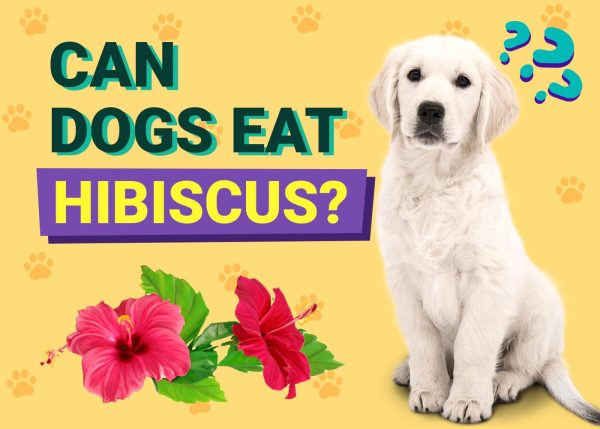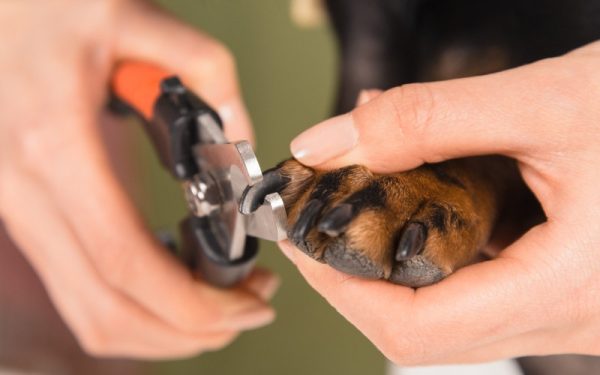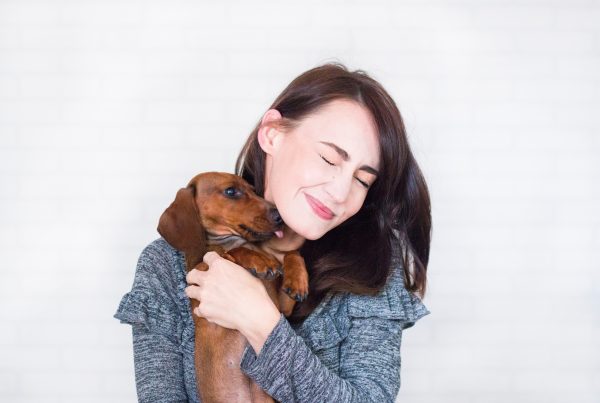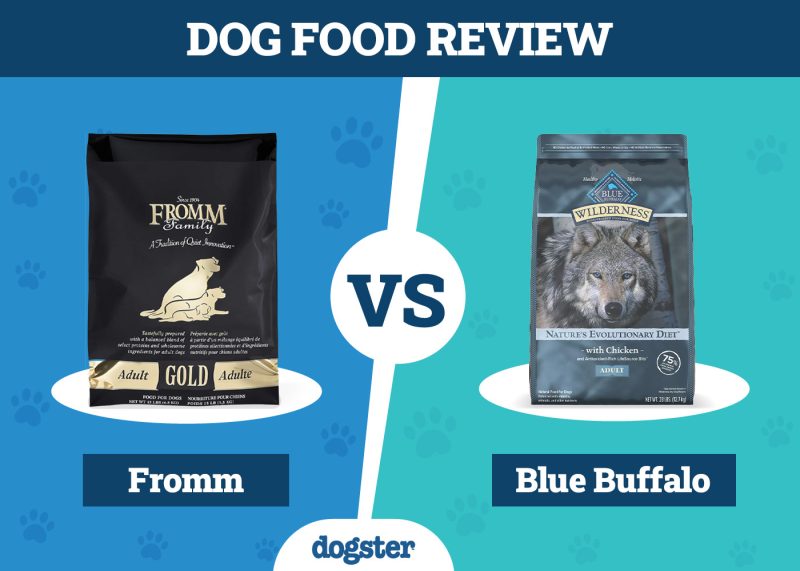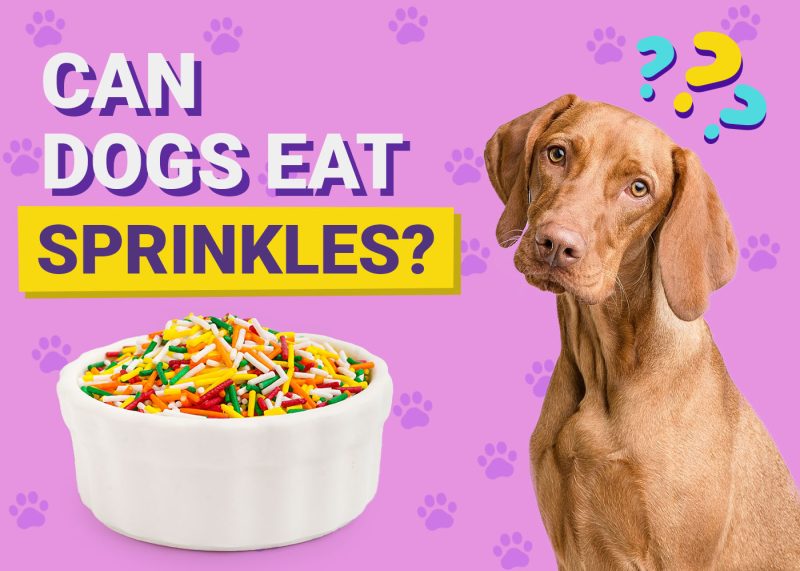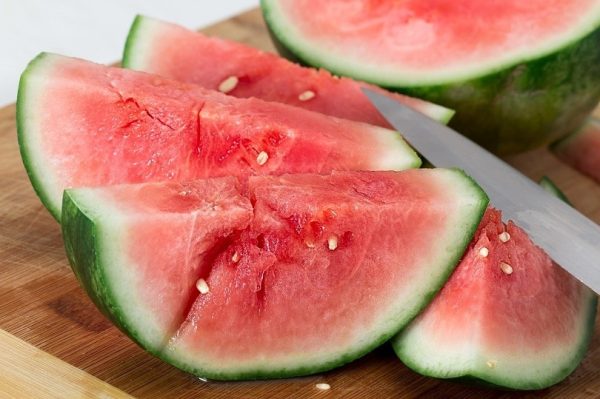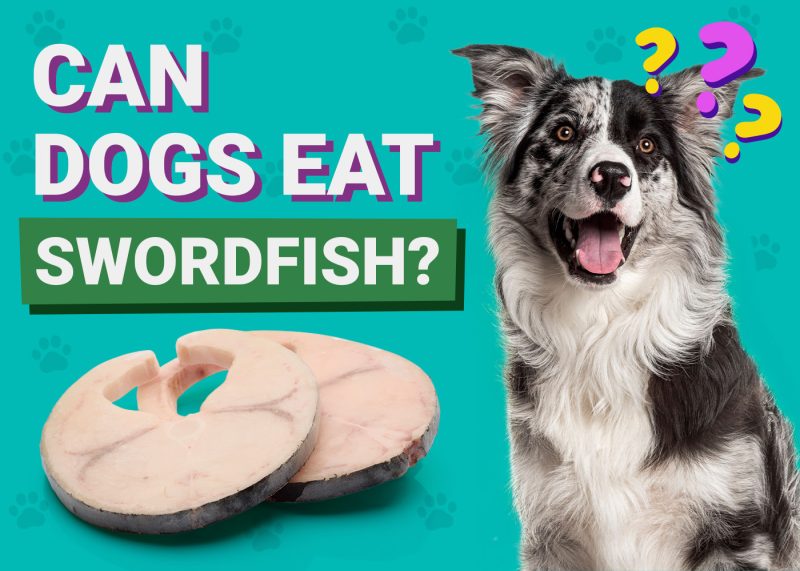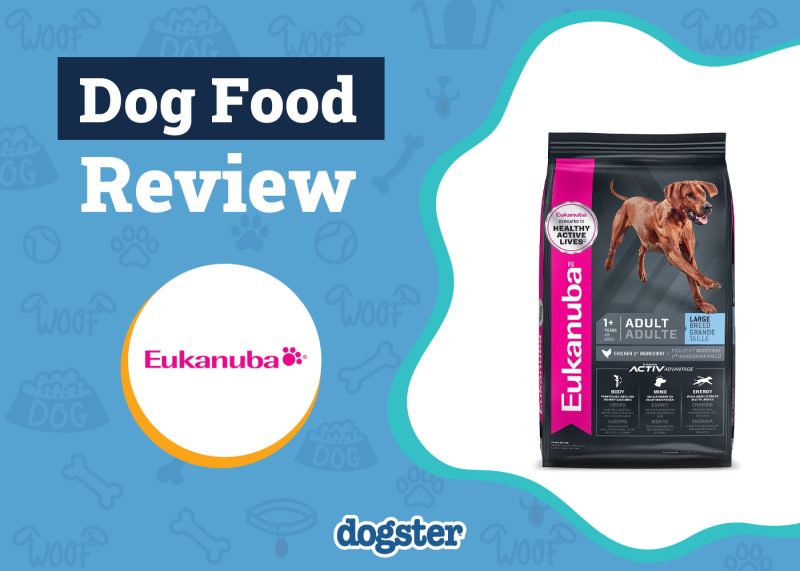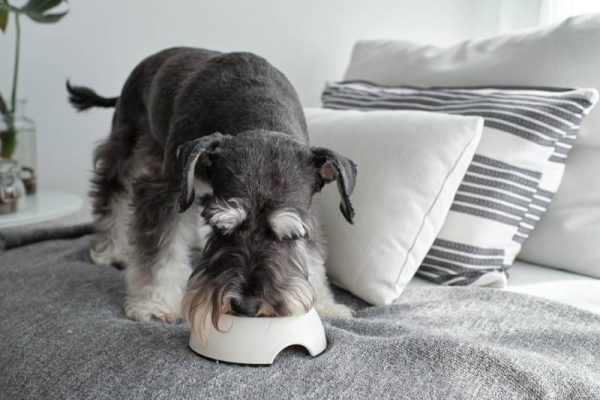In this article
It’s no secret that some pets have their favorite humans, sometimes to the point that they refuse to leave their owner’s side. But how do dogs choose their favorite person, and how does it happen?
Even though the domestication of dogs happened between 27,000 and 40,000 years ago, canines have retained survival instincts that influence their behavior. They gravitate toward the people and places that provide them with the food, water, and shelter they need. If we ask how dogs choose their favorite person, the main criterion involves survival and who ensures it.

Factors Affecting How a Dog Picks Their Favorite Person
Who Is Giving Them Attention?
Canines are social animals, with many species living in groups or packs. For example, wolves hunt collectively because it increases their success. Wolves and dogs share a common ancestor. Although the species diverged 27,000 years ago, they share 99.9% of their DNA. This social need still exists in our pets today. When you give your pup attention, you’re reinforcing this bond.
Many pups suffer from separation anxiety because they can’t bear being separated from their favorite person. This individual provides the attention they crave, and dogs learn the behaviors that elicit these reactions for good and bad. For example, your pooch follows a command to earn your praise. Likewise, a naughty pup learns to bark at the door if you let them inside the house.

Making Positive Associations
Positive associations are the foundation of cementing a dog’s choice of their favorite person. A good owner gives their pet many reasons to form these associations, whether long walks, treats for behaving, or a safe place to sleep. It’s also an excellent way to shape your pet’s behavior. Positive reinforcement teaches the animal that good things happen when they do something they’re supposed to do.
Over time, the dog learns to trust the person responsible for the rewards and responds physiologically to this association. One review of 69 studies concluded that the release of the hormone oxytocin in humans and dogs forms the basis of the interactions with our pets.1 It is a factor in social bonding. Interestingly, it also influenced tear formation when dogs were reunited with their owners.
The findings provide compelling evidence of a biological manifestation of canines choosing a favorite person.

The Role of Genetics
We can’t deny the role genetics plays in animal behavior and, thus, the dog’s choice of a favorite person. Some pets, such as the Doberman Pinscher and Akita, are known for being loyal and will bond closely with people. However, it’s often a function of their historic jobs. Watchdogs and guardians are excellent examples. Other breeds are more aloof, like the Chow Chow or Basenji. They aren’t mean; they’re just not overly affectionate.
Dogs share 84% of their DNA with people.2 Some similarities still exist between canine and human brains. They are capable of the six basic emotions: surprise, fear, disgust, sadness, happiness, and anger. They can feel joy and love. They have the hardware to choose a favorite and show that person evidence of their choice.
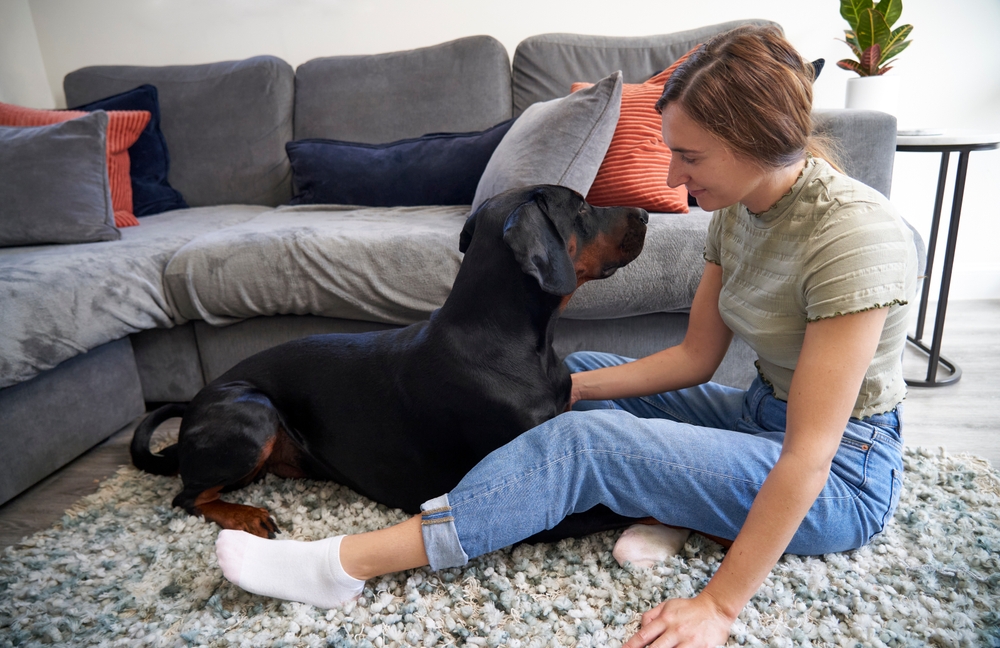
Resemblance Factors
Some research suggests dogs resemble their owners, which may affect which person a pup bonds with first.3 It makes evolutionary sense for canines to gravitate to someone who looks like them. They may perceive them to be friendly and not a threat because of their shared appearance. One study concluded that the eye region was the focal point for dogs and people.4
We can further extrapolate these findings to propose that prospective pet owners prefer animal companions with similar personalities. A quiet person may feel more comfortable with a calm dog than an energetic pooch. That may inadvertently affect the individual’s behavior and interactions with a particular pup. The dog may respond in kind since they are capable of recognizing human emotions.
These factors may set the stage for a pup to choose a certain person as their favorite. Remember that non-vocal communication is a two-way street.
Socialization
The critical period for canine socialization is between 3 and 14 weeks old. During this time, dogs learn to be dogs. They also start forming social bonds with people. Reputable breeds recognize the importance of this age as well as the profound effects that can occur during the puppies’ fear impact period between 8 and 12 weeks.
Positive experiences are vital for ensuring that dogs can bond with their future owners. Adverse events can have life-long consequences. We can safely assert that the foundation for choosing their favorite person occurs during this sensitive time. The puppies learn that people are good since they give them food, water, and attention.

The Negative Effects of Improper Socialization
A dog needs to stay with their mother and littermates until they are at least 8 weeks old. Research has shown puppies separated before this age are more likely to be fearful as adults. That can be a barrier to a dog being able to bond with their caregiver or trust them. Remember that it leaves a pup vulnerable to negative experiences, starting with the transition to their new home.
Look at the situation from the puppy’s perspective. The separation is traumatic enough. The scenario sets the owner up as the cause of this experience. It’s not hard to understand how it can impair their relationship with their pet.

Signs That You’re Your Dog’s Favorite
Dogs usually don’t hide their emotions. It’s easy to read what’s going on under the hood. You know you’re a favorite if your pup is always with you. They may follow you from room to room to keep you in their sight. When you return home from being away, they greet you with a wagging tail, a happy gaze, and maybe even tears if it’s been a while. Don’t be surprised if they made a bed out of your favorite shirt.
Other signs include an eagerness to please that’s evident on the dog’s face and through their actions. Their excitement is also palatable. All canines are food-motivated; that’s what makes treats an excellent training aid. However, the praise of a favorite person also resonates with a dog. The mere sound of your voice can rouse your pooch.
Sometimes, dogs become protective of their favorites. Anecdotal accounts abound of canines coming to their owners’ aid when threatened or in trouble. Some pups become jealous of other pets getting the attention they want from their humans. They want you all to themselves.
- Pawing you for pets
- Licking you
- Showing their belly to you
- Sleeping with you
- Knowing your schedule
- Smiling with eye contact

Conclusion
Dogs can read people’s emotions remarkably well. It helps them home in on the individual who will become their favorite. Food and treats are potent motivators. However, the little things matter, too, such as the attention and praise you give your pet and walks through the neighborhood. These positive experiences forge a bond with unconditional love. It’s one of many reasons dogs are our best friends.
Featured Image Credit: New Africa, Shutterstock
